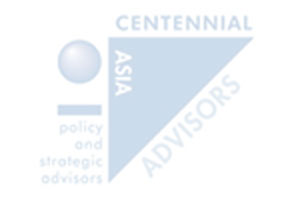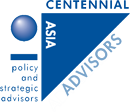- May 31, 2021
- Posted by: admin
- Category: Centennial Asia Insights
No Comments

Highlights from the CAA Weekly Table:
Asian economies face more challenges to growth as COVID infections and inflationary pressures rise. Policy is constrained but as infections peak and global demand improves, these economies are likely to see a rebound.
- China: Rising input prices are depressing margins and the resulting output cuts in some sectors pose a modest risk to growth. The currency is likely to keep appreciating gradually.
- India: The pandemic is easing, raising hopes for the recovery to regain momentum. However, we see the Rupee’s rise as unsustainable.
- Indonesia’s infrastructure fund is well-structured and should help boost infrastructure development particularly in the road sector which is a priority.
- Malaysia’s exports are surging, helping to support an economy reeling from a surging tide of COVID infections. However, the Philippines lacks Malaysia’s diversified export base and there has been little in the way of fiscal stimulus. Singapore’s strong momentum in the first quarter is likely to ease as manufacturing slows and the recovery in services may take longer to materialise given the recent reimposition of some restrictions on activity.
US-China contestation deepens, spelling difficulties for Asia
- After years of strategic advances in the Asia-Pacific region at the expense of the US, China is beginning to find itself on the backfoot. China’s responses to these setbacks are likely to produce a more troubled Indo-Pacific region.
- The US is mobilizing itself to compete with China with a revised set of defence spending priorities that target China. Strengthened alliances with Europe, Japan and South Korea together with a more accommodating India also boost the US position.
- China will not veer from its current approach, however. It will leverage off an expanded alliance with Russia and widen its carrot-and-stick approach to Asian countries, as well as to others. It is also likely to offer Asian countries a re-energised Belt & Road Initiative.
Political after-shocks from Covid-19 loom large
Given the mayhem it has caused, the pandemic is certain to produce longer term political consequences. The initial rally-around-the-flag support that incumbent leaders enjoyed has ended, giving way to deep popular discontent in several countries:
- As we reported previously, Malaysia is where the risk of a political backlash is greatest. IN the past week, the resentment against the political class has grown amid anger at the mishandling of the pandemic, suspicions of corruption and suggestions that the elites were given unfair advantages. The trust that has been broken will not be easily regained.
- Similarly, India’s Premier Modi and South Korea’s President Moon have seen their approval ratings fall sharply. Indonesia’s President Joko Widodo and Philippine President Duterte, however, have successfully maintained their popularity despite the ravages of the pandemic.
- Moon and Duterte have the fiscal space to step up fiscal stimulus and so could improve their political standing. Modi, however, is constrained, raising the fear that he may resort to beating the religious-nationalist drum to redeem himself with voters.
The CAA Weekly is currently available only for our subscribers. Please email contact@centennialasia.com for subscription enquiries.
31-May-2021
